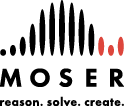ACT Announces Three Major Changes
By Scott Moser | October 9, 2019

On Tuesday, October 8, ACT announced three major changes that will affect test-takers over the next year. The first, due to go into effect next September, is an option that will allow students to retake just part of the ACT, seeking to improve scores on individual sections of the test by retaking just those sections. According to ACT chief commercial officer Suzana Delanghe, “Our research shows that ACT scores for students who take individual section tests are consistent with those earned when they take the entire test. We are simply offering new ways to take the ACT, saving students time and giving them the ability to focus only on subject areas needing improvement.”
This partial-retake option has never before been seen on the ACT or its main competitor, the SAT. Since many colleges “superscore” individual sections of the test (combining the best sections of various tests into a collection of highest scores), this new option will offer students an opportunity to improve their ACT without retaking sections of the test where they already have achieved their goals. It is unclear, however, how this will affect the admissions landscape more broadly. While many colleges do currently superscore the ACT, many more do not. It is common for colleges to require students to send their single best overall test, which means that this new option may not be of value for all students. Still, it offers a greater variety of options for test takers. Pricing for individual test sections has not yet been announced but is anticipated to be less expensive than the full ACT.
The second major shift, also taking effect in September and seemingly aimed at steering the way colleges consider test scores, will allow students to send a single superscore score report. In the past, students applying to schools that superscore have had to send full score reports from every test on which they had a best section, trusting colleges to consider only the highest results for each section. Beginning next year, students will have the option to send a single report that offers colleges a view of only those highest section scores. It remains unclear how many colleges will accept these superscore reports.
In a third break from the past, ACT has announced that it will begin offering online testing to students who take traditional Saturday exams in the US. Online testing has become the norm for students taking the ACT abroad, but ACT will soon begin expanding this offering throughout the US, beginning with a subset of test centers, but eventually spreading to all areas. While the paper-based test will remain widely available for the foreseeable future, this move seems to come as a signal that ACT is moving toward computer-based testing as the norm.
In order to avoid the obvious cheating concerns that might arise, the online ACT will only be offered in ACT test centers on test day, meaning that students will still have a similar experience of arriving at a test center, testing in a room with other students, etc. They will simply be interacting with a screen instead of a paper booklet. The greatest impact of the online testing will be faster scoring. Currently, paper-based tests typically take 2-3 weeks to score. With the new online format, students are expected to receive their scores in as little as two days.
For the immediate future, all of these options appear to benefit students, since they simply offer a broader array of options for testing beginning in the fall of 2020. If you have questions about how these changes may affect your students, please reach out to our founder and President Scott Moser at 720-605-6622 or scott@mosereducational.com.
